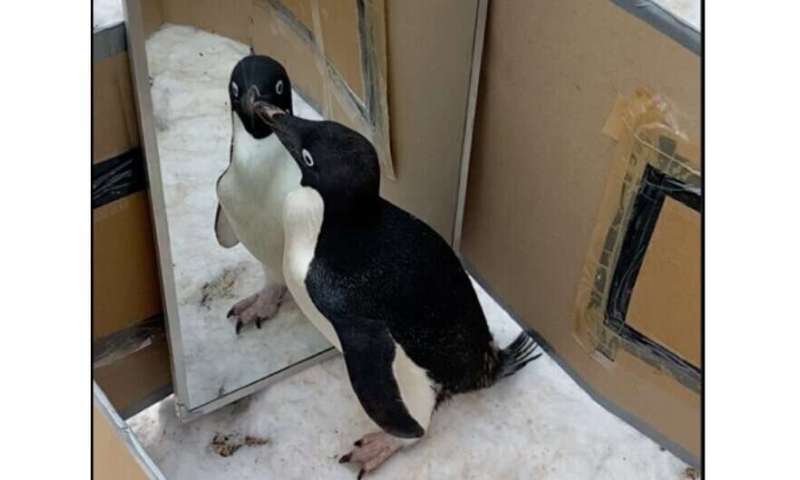Best of Last Week—Penguins may possess self-awareness, a new way to refrigerate, the huge expense of treating sepsis

It was a good week for biological research as a team of biologists from Czechia, Germany and Austria, discovered a type of bacteria that uses both bacteriochlorophyll-based photosynthetic complexes and proton-pumping rhodopsins to convert sunlight into energy—the first known example. Also, a trio of researchers from India conducting the mirror test with wild Adélie penguins in Antarctica, found that they may possess self-awareness. And a team at the University of Nebraska-Lincoln, found that a species of Halteria can eat huge numbers of infectious chloroviruses that share their aquatic habitat—the microscopic ciliates populate freshwater ponds across the world.
In technology news, a pair of researchers at Lawrence Berkeley National Laboratory used an ethylene carbonate solvent with a sodium iodide salt to create a new kind of refrigerator—one that does not emit any hydrofluorocarbons or other pollutants. And a team at Stanford University developed a new kind of spray-on smart skin that uses AI to rapidly understand hand tasks—applied to the back of the hand, the spray builds a mesh that serves as an electrical network sensor. Also, an international team of researchers found that emerging forms of thin-film device technologies that rely on alternative semiconductor materials may contribute to a more economically and environmentally sustainable Internet of Things. And a team with members from several institutions in China revisited the ideas behind the work the led to the first photovoltaic materials to describe its possible role in modern indoor photovoltaics applications.
And in other news, a team at the U.S. National Institutes of Health tested tissue extracted from autopsies performed on 44 people who had died from COVID-19 and found that the SARS-CoV-2 virus had spread throughout much of the body, including the brain—findings that suggest that infections by the virus are not just respiratory-based. Also, Kyu-Hyun Chae, an astrophysicist at Sejong University, in the Republic of Korea, found evidence from high-resolution velocity curves of 152 galaxies that supports a modified gravity model over dark matter. And finally, a team at Tufts University School of Medicine found that sepsis is one of the most expensive medical conditions in the world.
© 2023 Science X Network